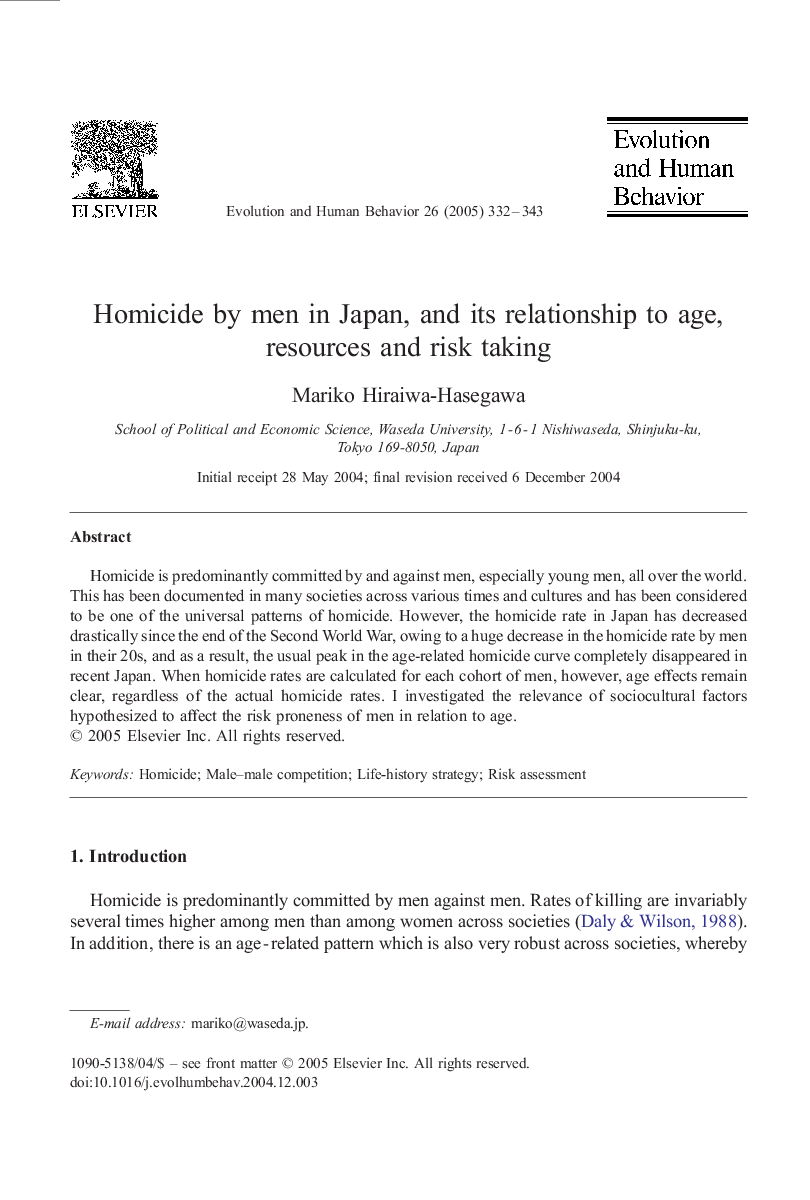| Article ID | Journal | Published Year | Pages | File Type |
|---|---|---|---|---|
| 10464075 | Evolution and Human Behavior | 2005 | 12 Pages |
Abstract
Homicide is predominantly committed by and against men, especially young men, all over the world. This has been documented in many societies across various times and cultures and has been considered to be one of the universal patterns of homicide. However, the homicide rate in Japan has decreased drastically since the end of the Second World War, owing to a huge decrease in the homicide rate by men in their 20s, and as a result, the usual peak in the age-related homicide curve completely disappeared in recent Japan. When homicide rates are calculated for each cohort of men, however, age effects remain clear, regardless of the actual homicide rates. I investigated the relevance of sociocultural factors hypothesized to affect the risk proneness of men in relation to age.
Related Topics
Life Sciences
Agricultural and Biological Sciences
Ecology, Evolution, Behavior and Systematics
Authors
Mariko Hiraiwa-Hasegawa,
